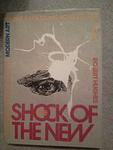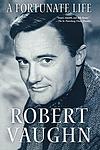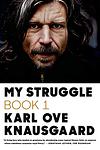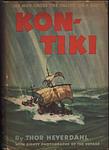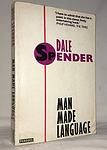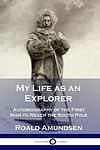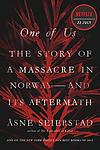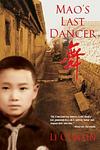The Greatest Norwegian, Australian "Nonfiction" Books Since 1900
Click to learn how this list is calculated.
This list represents a comprehensive and trusted collection of the greatest books. Developed through a specialized algorithm, it brings together 300 'best of' book lists to form a definitive guide to the world's most acclaimed books. For those interested in how these books are chosen, additional details can be found on the rankings page.
Genres
Countries
Date Range
Reading Statistics
Click the button below to see how many of these books you've read!
Download
If you're interested in downloading this list as a CSV file for use in a spreadsheet application, you can easily do so by clicking the button below. Please note that to ensure a manageable file size and faster download, the CSV will include details for only the first 500 books.
Download-
1. Schindler's List by Thomas Keneally
The book tells the true story of a German businessman who saves more than a thousand Polish Jews during the Holocaust by employing them in his factories. The protagonist's transformation from a greedy high living war profiteer to a savior of lives forms the crux of the narrative. It offers a chilling yet inspiring account of the horrors of the Holocaust, human resilience, and the power of one individual to make a significant difference.
-
2. The Female Eunuch by Germaine Greer
This book is a seminal feminist text that explores the oppression of women in society. It critiques the traditional roles and expectations of women in the mid-20th century, arguing that societal norms and conventions force women into a secondary, submissive role, effectively castrating them. The book encourages women to reject these norms and to embrace their own sexual liberation, arguing for the need for a revolution in the way women perceive themselves and their place in society.
-
3. Schindler's Ark by Thomas Keneally
The book is a historical novel based on the true story of a German industrialist who becomes an unlikely humanitarian amid the barbaric Nazi reign. When he witnesses the horrors inflicted upon the Jews, he is moved to save as many as he can by employing them in his factory. His actions, driven by courage and compassion, lead to the salvation of over a thousand Jewish workers from certain death in the Holocaust. The narrative explores themes of morality, survival, and the capacity for good in the face of overwhelming evil, as the protagonist navigates the complexities of war and the human spirit.
-
4. The Road from Coorain by Jill Ker Conway
"The Road from Coorain" is a memoir that chronicles the author's journey from her childhood on a remote sheep station in Australia, through her adolescence in war-ravaged Sydney, and finally, to her departure for America. The narrative explores themes of self-discovery, gender roles, and the power of education while providing a vivid portrayal of life in the Australian outback. The memoir also delves into the author's complex relationship with her mother and the impact of her father's death on their family.
-
5. The Shock of the New by Robert Hughes
"The Shock of the New" is an insightful exploration of modern art from the late 19th century to the present day. The book examines the cultural, social, and political forces that shaped and influenced the development of various art movements such as Cubism, Futurism, Surrealism, and Pop Art. It also provides an in-depth analysis of the works of prominent artists who played pivotal roles in these movements. The book serves as a comprehensive guide to understanding the complexities and nuances of modern art.
-
6. A Fortunate Life by A.B. Facey
"A Fortunate Life" is a memoir that chronicles the extraordinary life of a man who overcame immense hardships and adversity to find happiness and contentment. From his humble beginnings in rural Australia to his experiences as a soldier in World War I, the author shares his remarkable journey filled with poverty, loss, and resilience. Despite facing numerous challenges, he remains optimistic and grateful for the opportunities life has presented him, ultimately proving that a fortunate life is not defined by material wealth, but by the strength of the human spirit.
-
7. Tracks by Robyn Davidson
"Tracks" is a memoir that recounts the author's extraordinary journey across the Australian desert on camelback. The narrative provides vivid descriptions of the harsh desert landscape, the challenges faced during this nine-month, 1,700-mile trek, and the transformation of the author's personal character along the way. The book also explores her interactions with the indigenous Aboriginal people and their culture, and includes her reflections on solitude, self-discovery, and the human connection to nature.
-
8. Kon-Tiki by Thor Heyerdahl
This book is a captivating real-life adventure story about a Norwegian explorer and his crew who set out on a daring voyage across the Pacific Ocean on a balsa wood raft. The journey, undertaken to prove a controversial anthropological theory about the settlement of Polynesian islands, is filled with danger, excitement, and discovery. The author's vivid descriptions of the perilous journey, the magnificent sea life they encounter, and the ultimate success of their expedition make this a thrilling and inspiring read.
-
9. The Bookseller of Kabul by Asne Seierstad
This book provides an intimate and eye-opening look into the everyday life of an Afghan family. The narrative follows a bookseller in Kabul, who despite the oppressive Taliban regime, courageously continues his trade. The story delves into his family dynamics, the struggles of his two wives, his children's lives, and the societal norms and customs they navigate. It paints a vivid picture of life in Afghanistan, exploring the themes of love, courage, resilience, and the power of literature.
-
10. My Struggle by Karl Ove Knausgaard
The book in question is an autobiographical novel that delves deeply into the minutiae of the author's life, exploring his personal relationships, emotions, and the everyday experiences that shape his identity. It is a candid and introspective narrative that spans across various stages of his life, from childhood to adulthood, and examines themes such as family, death, love, and ambition. The author's unflinching honesty and detailed prose invite readers to reflect on the complexities of their own lives, as he scrutinizes the ordinary moments that, collectively, define who we are.
-
11. Stradbroke Dreamtime by Oodgeroo Noonuccal
"Stradbroke Dreamtime" is a collection of autobiographical stories and traditional Aboriginal tales that weave together the personal experiences of an Indigenous Australian woman with the cultural heritage of her people. The book offers a window into the author's childhood on Stradbroke Island, sharing memories of family life, the natural world, and the impact of colonialism. Alongside these reflections, the work preserves a number of Dreamtime stories, which are central to Aboriginal spirituality and identity, passing on the wisdom and traditions of her ancestors through narratives that celebrate the connection between the land and its inhabitants.
-
12. The Kon-Tiki Expedition: By Raft Across the South Seas by Thor Heyerdahl
The book is a thrilling account of a daring and adventurous expedition across the Pacific Ocean on a balsa wood raft named Kon-Tiki. The journey, led by a Norwegian explorer, is an attempt to prove that South Americans could have settled Polynesia in pre-Columbian times. The narrative is filled with descriptions of dangerous encounters with marine life, harsh weather conditions, and the challenges of surviving on the open sea. The expedition's success provides compelling evidence in support of the author's theory.
-
13. The Tyranny Of Distance by Geoffrey Blainey
"The Tyranny of Distance" explores the impact of geographical isolation on Australia's history, economy, and society. Blainey delves into how the vastness of the continent has shaped the country's development, from the challenges faced by early settlers to the struggles of maintaining connections with the rest of the world. Through a comprehensive analysis, the book highlights the unique circumstances and opportunities that arise from Australia's geographical position, ultimately offering a thought-provoking perspective on the nation's past and future.
-
14. Man Made Language by Dale Spender
The book in question explores the concept that language is not a neutral medium of communication but rather a man-made construct that reflects and perpetuates the patriarchal structure of society. It argues that the way language is used and structured inherently privileges male perspectives and marginalizes women, influencing perceptions and reinforcing gender inequalities. Through a critical examination of linguistic practices, the text challenges readers to recognize the biases embedded in everyday language and consider the implications these have on women's experiences and the broader social power dynamics.
-
15. My Place by Sally Morgan
"My Place" is a poignant autobiographical account that traces the personal journey of an Aboriginal woman in Australia as she uncovers her family's past and her own cultural identity. Through a series of interviews and personal reflections, the narrative delves into the experiences of her mother, grandmother, and great-uncle, revealing the hidden stories of displacement, suffering, and resilience that were kept secret due to the shame and stigma associated with their Aboriginal heritage. The book is a powerful exploration of the impact of colonialism and racism on individual lives and serves as a testament to the strength of family bonds and the reclaiming of one's history and sense of self.
-
16. The South Pole by Roald Amundsen
The book is a detailed firsthand account of the first successful expedition to the South Pole, led by the author, a noted Norwegian explorer. It chronicles the meticulous planning, the journey's challenges, and the strategic decisions that enabled the team to reach the pole on December 14, 1911, ahead of their British rivals. The narrative combines personal reflections, vivid descriptions of the harsh Antarctic environment, and insights into the teamwork and innovation crucial for survival and success in one of the most extreme climates on Earth.
-
17. 800 Horseman by Col Stringer
The book is a historical account that pays tribute to the legendary Australian Light Horsemen, who played a crucial role during World War I, particularly in the Middle East campaign. It delves into the remarkable feats of these mounted troops, known for their exceptional horsemanship, courage, and endurance. The narrative celebrates their most famous victory at the Battle of Beersheba and explores the unique bond between the horsemen and their faithful mounts, offering insights into the strategies, challenges, and the enduring legacy of these iconic figures in Australian military history.
-
18. The Fatal Shore by Robert Hughes
"The Fatal Shore" provides an expansive and detailed historical account of the colonization of Australia by the British Empire, focusing particularly on the transportation of convicts to the penal colonies established there in the 18th and 19th centuries. The book delves into the harsh realities and brutal conditions faced by the convicts, as well as the broader social, political, and economic ramifications of establishing a colony on the other side of the world. Through compelling narratives and meticulous research, it explores the transformation of Australia from a penal colony to a nation, examining the impact on both the indigenous populations and the settlers.
-
19. One Of Us: The Story Of Anders Breivik And The Massacre In Norway by Asne Seierstad
One of Us by Asne Seierstad is a detailed account of the 2011 terrorist attack in Oslo, Norway, carried out by Anders Breivik. The book explores Breivik's background, motives, and planning leading up to the attack, as well as the aftermath and impact on the survivors and families of the victims. Seierstad's thorough research and interviews with those affected provide a comprehensive and emotional portrayal of the tragedy, shedding light on the complexities of extremism and the devastating consequences of hate.
-
20. Ecology, Community And Lifestyle by Arne Naess
"Ecology, Community and Lifestyle" is a philosophical text that outlines the principles of deep ecology, a movement emphasizing the intrinsic value of all living beings and the need for radical shifts in modern human societies to sustain ecological balance. The book delves into the interdependence between human life and the environment, advocating for a comprehensive transformation in our lifestyles and political systems to foster a sustainable relationship with the earth. It combines insights from ecology, philosophy, and sociology to propose a more harmonious way of living that respects the limits of the planet's resources and promotes a thriving, diverse biosphere.
-
21. Fighting Mc Kenzie Anzac Chaplain by Col Stringer
The book tells the story of Daniel "Fighting Mac" McKenzie, a remarkable military chaplain who served with the ANZAC (Australian and New Zealand Army Corps) forces during World War I. Known for his unorthodox methods and fierce determination, McKenzie was a spiritual guide who also physically defended and rescued soldiers in the trenches, earning him legendary status among the troops. His story is one of bravery, compassion, and unwavering faith, as he navigated the horrors of war to provide comfort and support to the soldiers fighting on the front lines. Through his actions, McKenzie became a symbol of hope and resilience, embodying the spirit of the ANZACs.
-
22. Mao's Last Dancer by Li Cunxin
The book is a memoir of a Chinese peasant boy who, chosen at a young age by Madame Mao's cultural delegates to become a ballet dancer, undergoes a grueling training at Beijing Dance Academy. Through sheer determination and resilience, he excels and earns a rare opportunity to study in America. His experiences abroad open his eyes to the stark contrasts between the communist regime of China and the freedoms of the West. The story follows his emotional and ideological struggle as he eventually defects, leaving behind his family and homeland to pursue his passion for dance and a life of artistic and personal freedom.
-
23. Fathoms: The World In The Whale by Rebecca Giggs
"Fathoms: The World In The Whale" is a profound exploration of the relationship between humans and whales, delving into the history, mythology, and biology of these majestic creatures. The book weaves together environmental and cultural narratives, examining the impact of human activity on whales and their habitats, while also reflecting on what whales signify in our collective imagination. Through lyrical prose, the author invites readers to consider the ethical dimensions of wildlife conservation, the consequences of climate change, and the intricate connections between the natural world and human society, all through the lens of the awe-inspiring presence of whales in our oceans.
-
24. Wrong About Japan by Peter Carey
In this travel memoir, a father and his anime-obsessed son embark on a journey to Japan in an attempt to understand the son's fascination with the country's pop culture. Their adventure leads them to meet manga artists, anime directors, and cultural commentators, through which they explore the nuances of Japanese animation and its historical contexts. As the father attempts to bridge the cultural gap and connect with his son, he confronts his own preconceptions and discovers the complexities of modern Japanese culture, which cannot be easily understood through the lens of Western perspectives. The narrative delves into themes of cultural exchange, the generational divide, and the search for authenticity in a land where the line between reality and fiction often blurs.
-
25. Home of the Blizzard by Douglas Mawson
"Home of the Blizzard" is a first-hand account of an Antarctic expedition led by the author. The narrative takes the reader through the challenging journey of survival in the harsh, icy wilderness of Antarctica. It details the struggles faced by the team, including extreme weather conditions, loss of team members, and near-death experiences. The book serves as a testament to human resilience and the spirit of exploration in the face of adversity.
Reading Statistics
Click the button below to see how many of these books you've read!
Download
If you're interested in downloading this list as a CSV file for use in a spreadsheet application, you can easily do so by clicking the button below. Please note that to ensure a manageable file size and faster download, the CSV will include details for only the first 500 books.
Download



